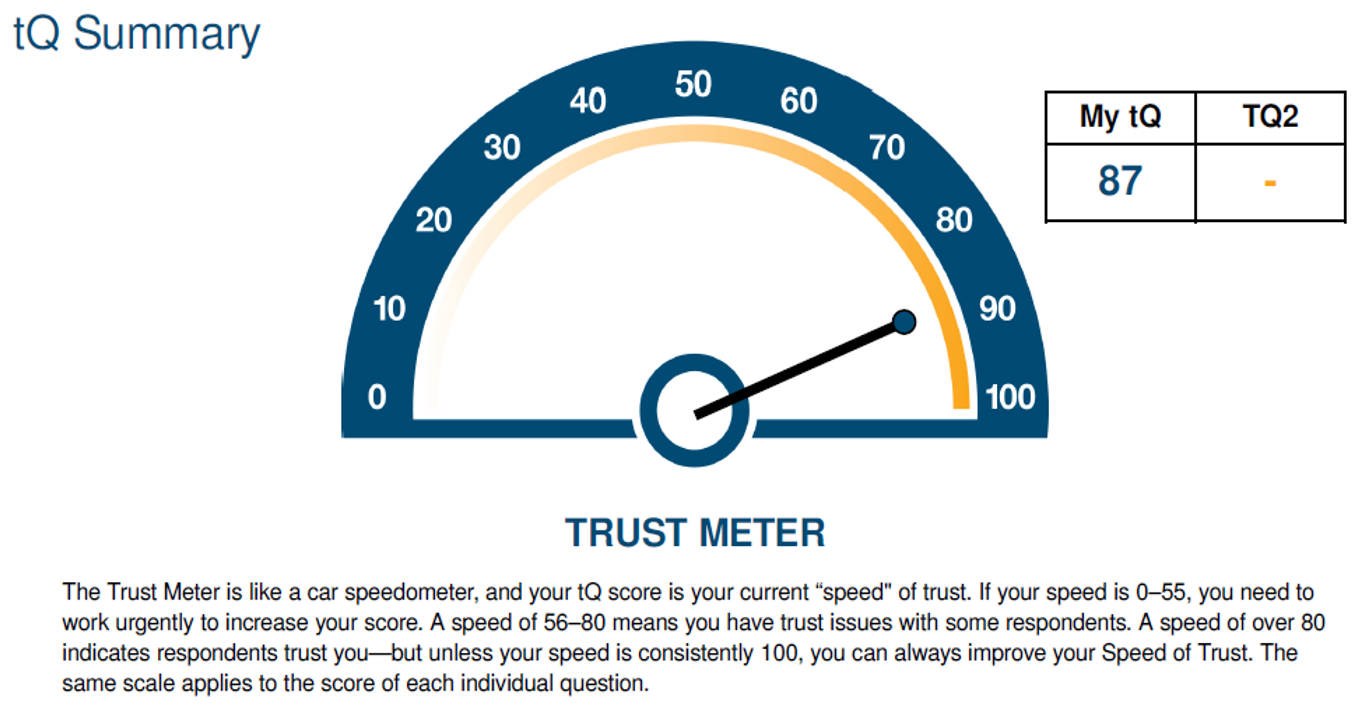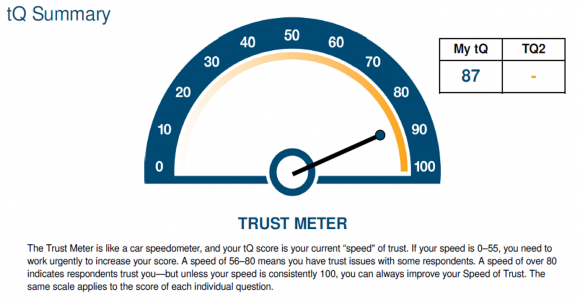One of the most advantageous aspects of my current role, is the ability to engage with a group of headteachers. I changed ‘team’ to ‘group’ as we do not have collective accountability, our successes are to a large extent mutually exclusive, however three times a year we come together at head office as a group to work together, exchange ideas and act as critical friends. In-between these formalised dates, we have further opportunities to collaborate, borrowing from one another’s talents, expertise, successes and lessons learnt though these are not mandated. From my perspective, this group, and these sessions, offer a valuable and comparative, professional learning opportunity.
First Headteachers forum of 2017
Day 1 Leading at the Speed of Trust™ was preceded with a 360 Trust Quotient (tQ) and an forward to the session.
Here is my first reflective point. Proprietary staff development often has scalability on it is side, if not cost. That said, organisational learning platforms are widely available and there really is no excuse not to; survey delegates needs and prior knowledge before the sessions, offering a think piece or stimulus and provide a discussion forum to propagate the conversation in advance of training. Whiting the appetite of the delegates and informing the session leads of their audience and more importantly, possible misconceptions to address.
The workshop developed a framework and a language of trust, primarily focused on personal leadership conduct (The Four Cores of Self-Trust: 1. Integrity, 2. Intent, 3. Capabilities, and 4. Results) and building relationship trust (13 structured conversations). There were plenty of business quotations from the great and the good,
The voyage of discovery is not in seeking new landscapes but in having new eyes. Marcel Proust
Trust is like the air we breathe. When it’s present, no one really notices. When it’s absent, everyone notices. Warren Buffett
metaphorical explanations.
Water is the vital substances that sustains all life on this planet. When it’s there, everything grows. When it’s not there, everything withers and dies.
The same is true for trust. When there is no trust, relationship decay, projects fail, customers go to competitors, initiatives under-perform and work grinds to a halt.
and feel-good, over-layed and spliced videos.
We had a number of opportunity to interact, discuss and reflect in a bespoke, first class learning environment.
With Vivienne Porritt ringing in my ears, whilst I enjoyed the event, what was I planning to do with this professional investment? Here is my commitment:
I reviewed the tQ. I was reassured that the tQ report was very positive and scores closely matched. I was less interested in the score and more interested in the accuracy of my growing self-awareness.
Self Trust – Self 83 vs Score 87.
Relationship Trust – Self 85 vs Score 86.
From the report, I have prioritised three areas for professional awareness, drafted a response to my team, and shared that commitment with them in person. To be clear, these were already relative strengths, just not as pronounced.
Given today’s conversation and training on trust, I wanted to thank you for your feedback. Your feedback is both reassuring and your comments informative. I hope you know that I truly value your feedback. You have drawn my attention to three areas of my trust leadership that I aim to develop further with your support.



